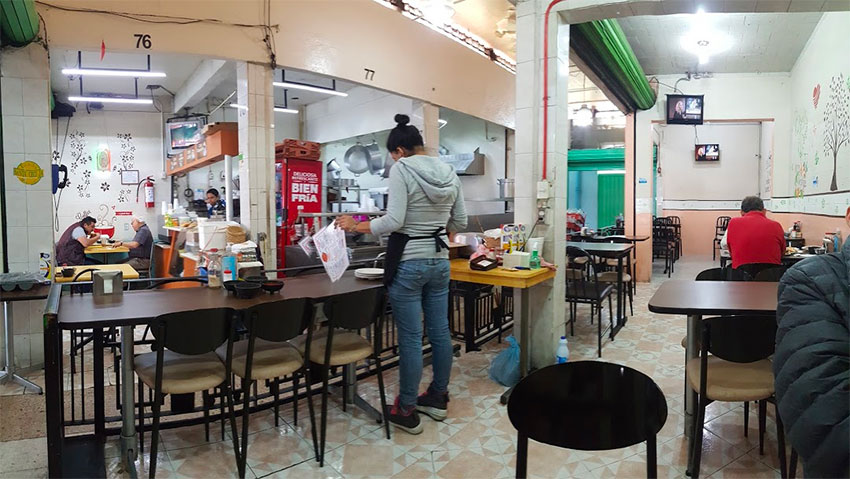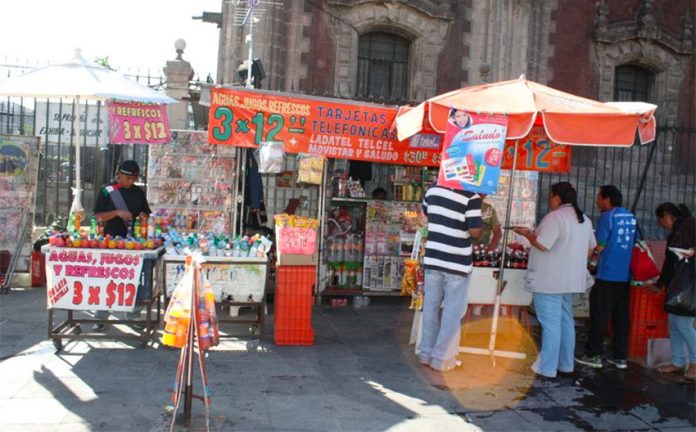A nationwide quarantine would be devastating for the Mexican economy but even without one the jobs of millions of people are at risk due to the coronavirus pandemic and the growing outbreak of the disease in Mexico.
The bank BBVA México predicts in a new report that unemployment will increase significantly in April as businesses struggle for survival amid an economic downturn triggered by the spread of Covid-19.
Report author David Cervantes writes that the most vulnerable sectors are retail, restaurants, transportation and tourism, which collectively employ 32.7% of Mexico’s 55.7-million-strong workforce. In other words, the jobs of some 18 million people could be at risk as the result of a coronavirus-fueled recession.
Casual and temporary workers will be the first to find themselves out of a job, the BBVA report says, adding that the longer an economic stagnation caused by the Covid-19 pandemic continues, the more positions will be lost.
Some businesses have already begun laying off staff because of a lack of cash flow due to a downturn in customers, the newspaper El Universal reported, adding that millions of small businesses would not survive a temporary lockdown of the country to prevent the spread of Covid-19.
Eduardo Contreras, president of Mexico City business chamber Canacope, said that based on conservative estimates 10% of all businesses in the capital – some 42,000 establishments – will close due to a drop in consumer demand because of the coronavirus emergency.
Stationery stores, uniform shops, internet cafes and small restaurants known as fondas are among the most vulnerable businesses, he said, explaining that many depend on their day-to-day takings to survive. The income of some businesses has fallen by 80% in recent days, Contreras added.
The business leader said that people who work in the informal economy, such as street vendors, will likely suffer even more from an economic downturn caused by the coronavirus outbreak.
“We have a working population of 4.08 million [in Mexico City], 25% of whom have an informal business. … If they don’t sell on [just] one day, it’s difficult for them to recover,” he said.
For his part, the president of the Mexico City branch of the national restaurant association, Canirac, said that a significant reduction in customer numbers over a period of 10 to 12 weeks “would end the industry.”
Marco Antonio Buendía added that restaurant suppliers will also struggle to survive.

José Ambe, CEO of logistics consultancy firm LDM, said that the situation is made worse because 90% of small and medium-sized businesses in Mexico don’t have disaster recovery plans, don’t have healthy finances or are in debt.
He said that business owners affected by a downturn in sales due to Covid-19 need to develop action plans that will help them survive a prolonged period of economic stagnation.
President López Obrador said on Monday that his administration would seek to support small businesses financially but he ruled out any possibility of waiving taxes for large businesses.
He also said that there wouldn’t be any “rescues” for banks and large companies as occurred in the “neoliberal period,” a term he uses to describe the 30 years before he came to power in late 2018.
The president said that his economic plan seeks to support the weakest and most vulnerable, not the rich and powerful, asserting that it is the poor who need to be rescued.
“We’re sending senior citizens their pension in advance. … We’re going to give loans [to small businesses]. … We’re going to expand [the loan scheme] so that it reaches more people, those who have workshops, small business owners. … The neediest [come] first. I believe that all Mexicans share this [idea],” López Obrador said.
In a video posted to social media on Sunday, the president urged Mexicans to continue going out and supporting local businesses such as restaurants, asserting that people could continue living their normal lives for the time being.
However, other political leaders, such as Mexico City Mayor Claudia Sheinbaum, have appealed to people to stay at home as much as possible to slow down the spread of Covid-19.
Sheinbaum has announced the temporary closure of movie theaters, sports centers, museums, bars and nightclubs in the capital but restaurants can continue to open until further notice and the public transit system, including the Metro, remains operational.
Source: El Universal (sp)
